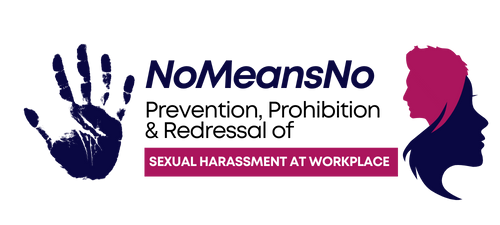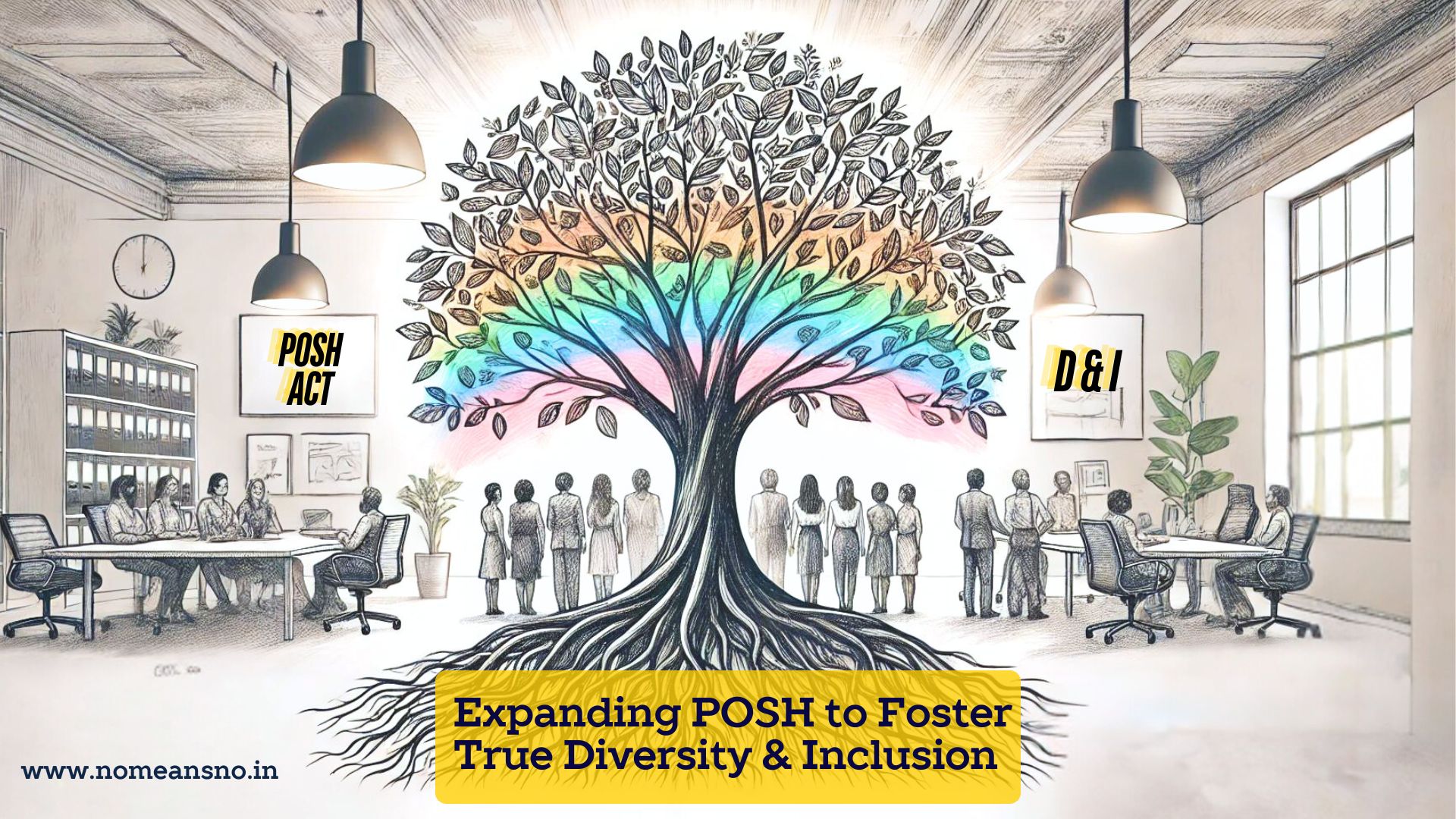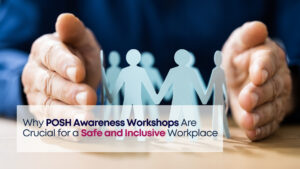Rethinking POSH Compliance in India
As I sip my morning tea, gazing at the snow-capped peaks of Nanda Devi from a serene village in Uttarakhand, my thoughts drift toward a crucial topic—POSH compliance in India. The POSH Act, 2013, was designed to prevent sexual harassment at the workplace, yet a persistent debate surrounds its scope.
Why does the POSH Act only protect women?
This question often arises in my POSH training sessions and compliance audits. Some argue that making POSH policy gender-neutral would dilute its purpose, while others believe workplace harassment laws in India should evolve to protect all genders.
The truth is, power—not gender—fuels workplace harassment today. It’s time we address this evolving reality.
The POSH Act: Why It’s Women-Centric?
The Prevention of Sexual Harassment (POSH) Act, 2013, was a landmark move, ensuring workplaces across India became safer for women. It was driven by decades of unreported harassment cases and landmark judgments, such as the Vishaka Guidelines issued by the Supreme Court of India.
However, as workplace dynamics shift and Diversity & Inclusion (D&I) policies expand, the law’s gender-specific approach is being questioned.
Is the POSH Act Biased?
- Critics argue that men and LGBTQ+ employees can also face harassment but lack legal recourse under the POSH Act.
- Advocates counter that expanding the law might dilute protections for women, who still experience the majority of workplace harassment cases.
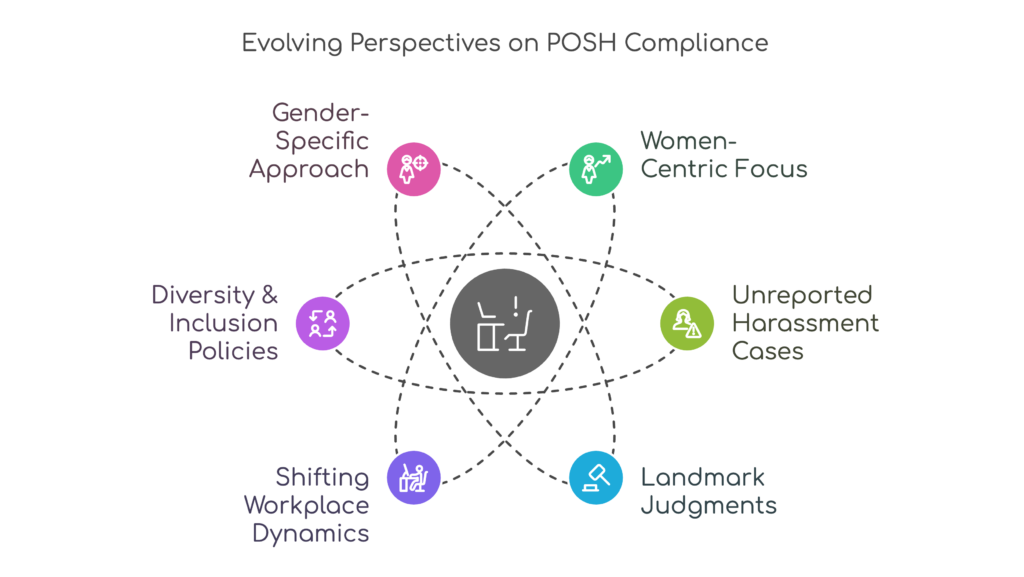
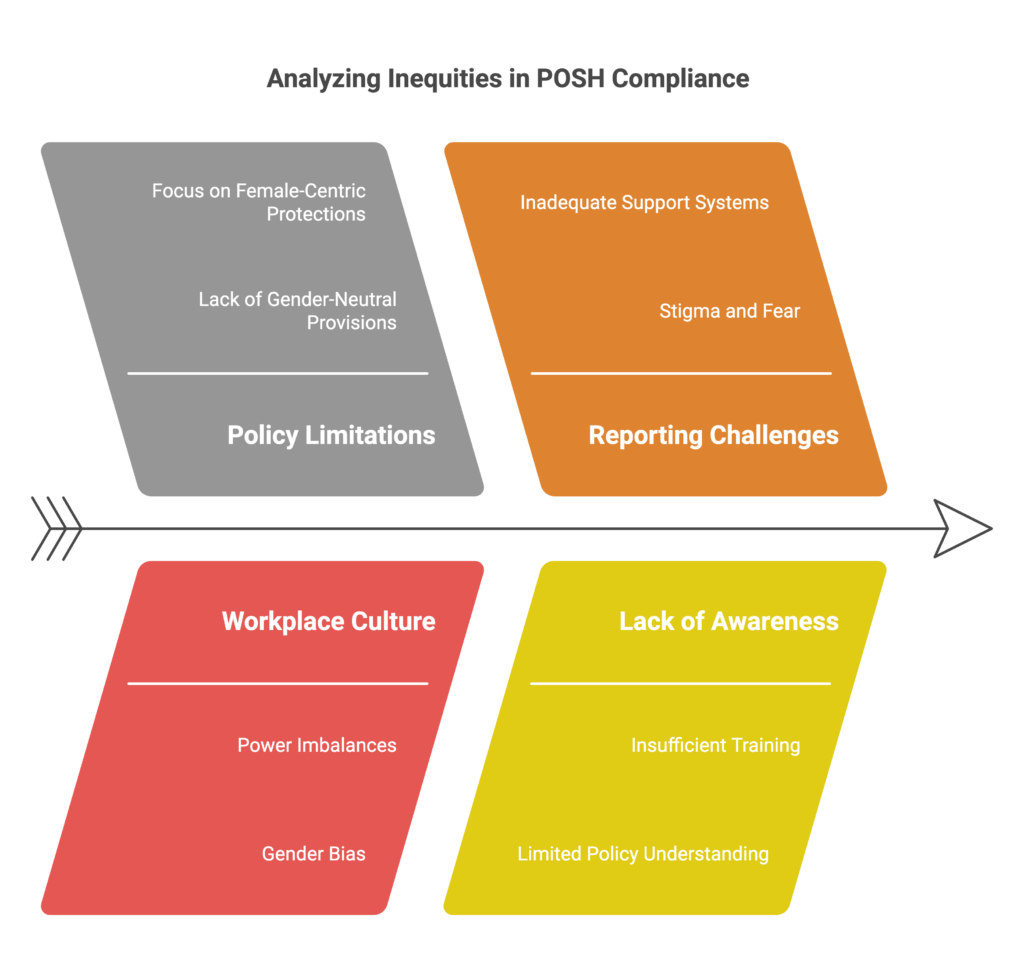
Diversity & Inclusion: When Inclusion Lacks Protection
During my POSH compliance audits, I’ve interacted with numerous employees from diverse backgrounds. A recurring theme in our discussions is how employees hired through D&I initiatives often feel unsupported in their workplaces.
One incident stands out—a young professional from the LGBTQ+ community shared how they became the target of jokes and microaggressions just weeks after being hired under a diversity hiring program.
Despite the company’s POSH policy, there was no framework to address their experience. Harassment doesn’t always come in explicit forms—it can be subtle, systemic, and deeply ingrained in workplace culture.
Statistics Speak Volumes
According to a 2023 survey:
- 40% of LGBTQ+ employees in India report facing workplace harassment.
- 17% of reported workplace harassment cases involve male employees, yet they have no protection under the POSH Act.
These numbers reveal a glaring gap—our laws are failing to protect a significant portion of the workforce.
Why POSH Compliance Needs a Gender-Neutral Approach
Traditionally, workplace power was concentrated among men, making women the primary victims of harassment. However, corporate power structures are evolving.
Harassment is No Longer About Gender—It’s About Power
In modern workplaces:
✅ Women hold leadership roles and can misuse their power.
✅ Men in junior roles face bullying, discrimination, and sexual harassment.
✅ LGBTQ+ employees encounter workplace biases but lack legal safeguards.
If the goal of POSH compliance in India is to create safe workplaces, we must extend protection beyond gender.
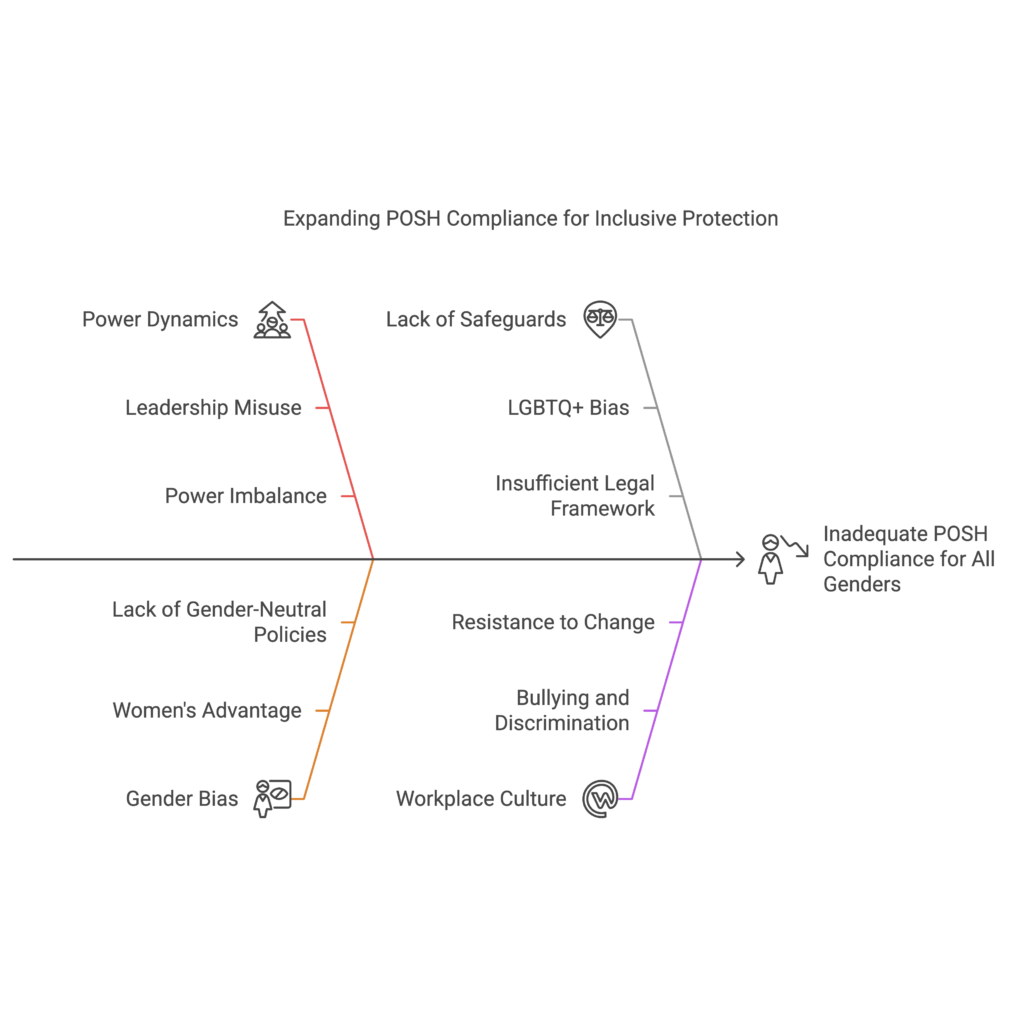
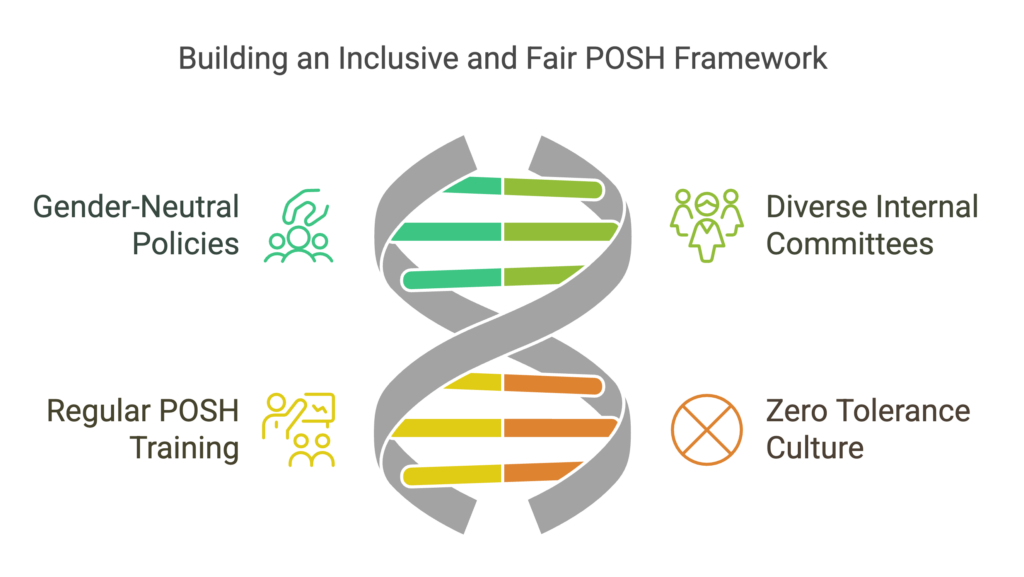
Beyond Compliance: How Organizations Can Build Safer Workplaces
While legal reforms take time, organizations don’t have to wait to create inclusive and harassment-free workplaces.
Steps Companies Can Take Today
✅ Expand POSH Policies – Make workplace harassment laws gender-neutral.
✅ Diverse Internal Committees (ICs) – Include men, women, and LGBTQ+ members in the POSH IC for fair investigations.
✅ Regular POSH Training – Move beyond tick-box compliance; conduct interactive and scenario-based POSH training.
✅ Zero Tolerance Culture – Reinforce strict anti-harassment policies through internal HR guidelines.
At No Means No, we advocate for a comprehensive POSH framework that goes beyond legal mandates. POSH training should be a transformation, not a formality.
Final Thoughts: Leading the Change in POSH Compliance
As I watch the sun fully rise over the Himalayan mountains, one thought lingers—why wait? Should we wait for more harassment cases before acknowledging that workplace safety must extend to all genders?
The POSH Act, 2013, was a crucial milestone, but the future of workplace safety demands inclusivity. It’s time to shift from compliance to cultural transformation—where workplaces are truly safe, diverse, and harassment-free for everyone.
Take Action: Ensure Your Workplace is Safe for Everyone
Are you looking to create a truly inclusive and POSH-compliant workplace?
📢 Learn more about our expert-led POSH Train The Trainer Program and compliance services.
📢 Book a consultation today to strengthen your workplace policies!
#NoMeansNo
